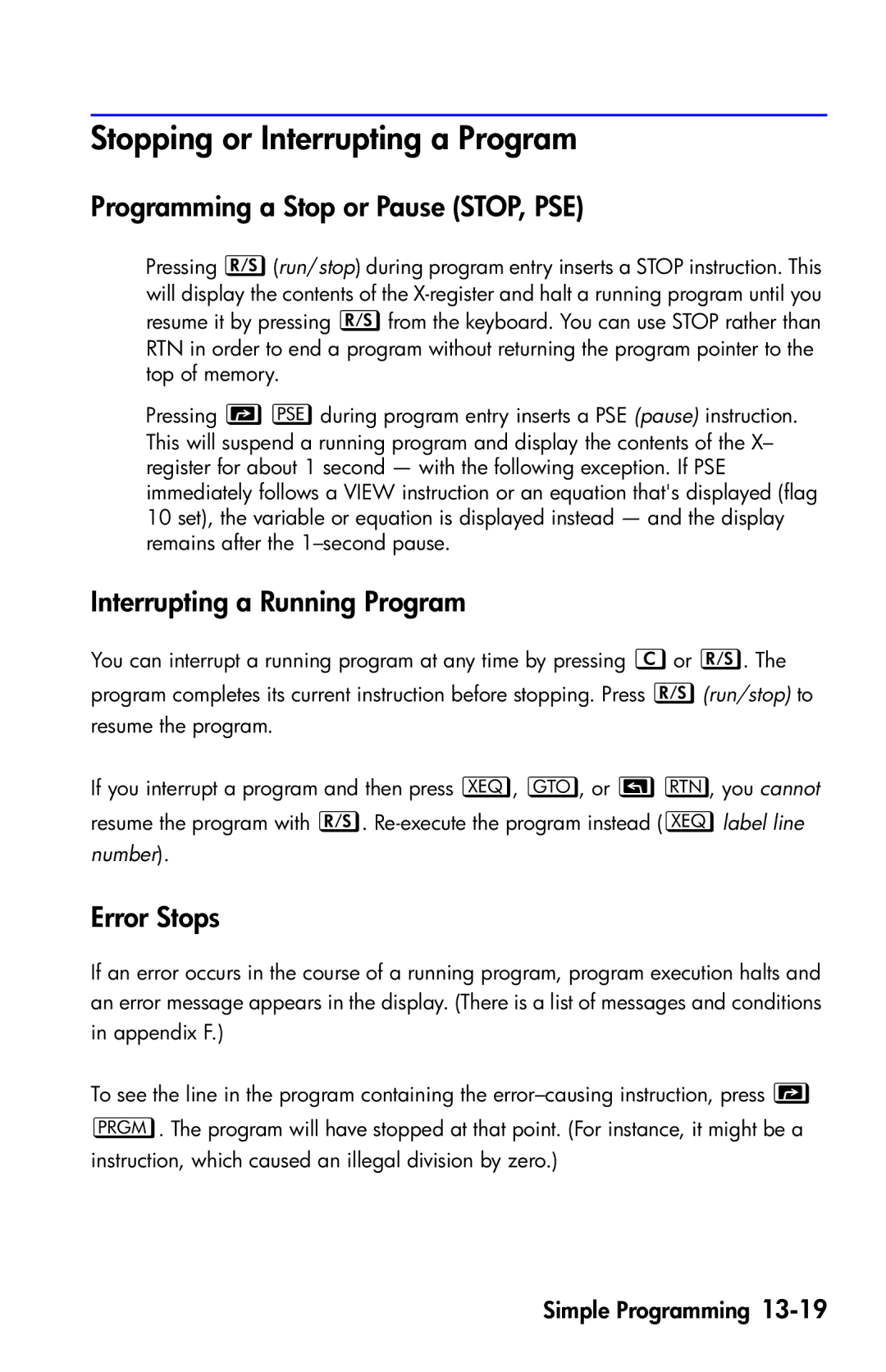Stopping or Interrupting a Program
Programming a Stop or Pause (STOP, PSE)
Pressing (run/stop) during program entry inserts a STOP instruction. This will display the contents of the
Pressing during program entry inserts a PSE (pause) instruction. This will suspend a running program and display the contents of the X– register for about 1 second — with the following exception. If PSE immediately follows a VIEW instruction or an equation that's displayed (flag 10 set), the variable or equation is displayed instead — and the display remains after the
Interrupting a Running Program
You can interrupt a running program at any time by pressing or . The program completes its current instruction before stopping. Press (run/stop) to resume the program.
If you interrupt a program and then press , , or , you cannot resume the program with .
Error Stops
If an error occurs in the course of a running program, program execution halts and an error message appears in the display. (There is a list of messages and conditions in appendix F.)
To see the line in the program containing the
